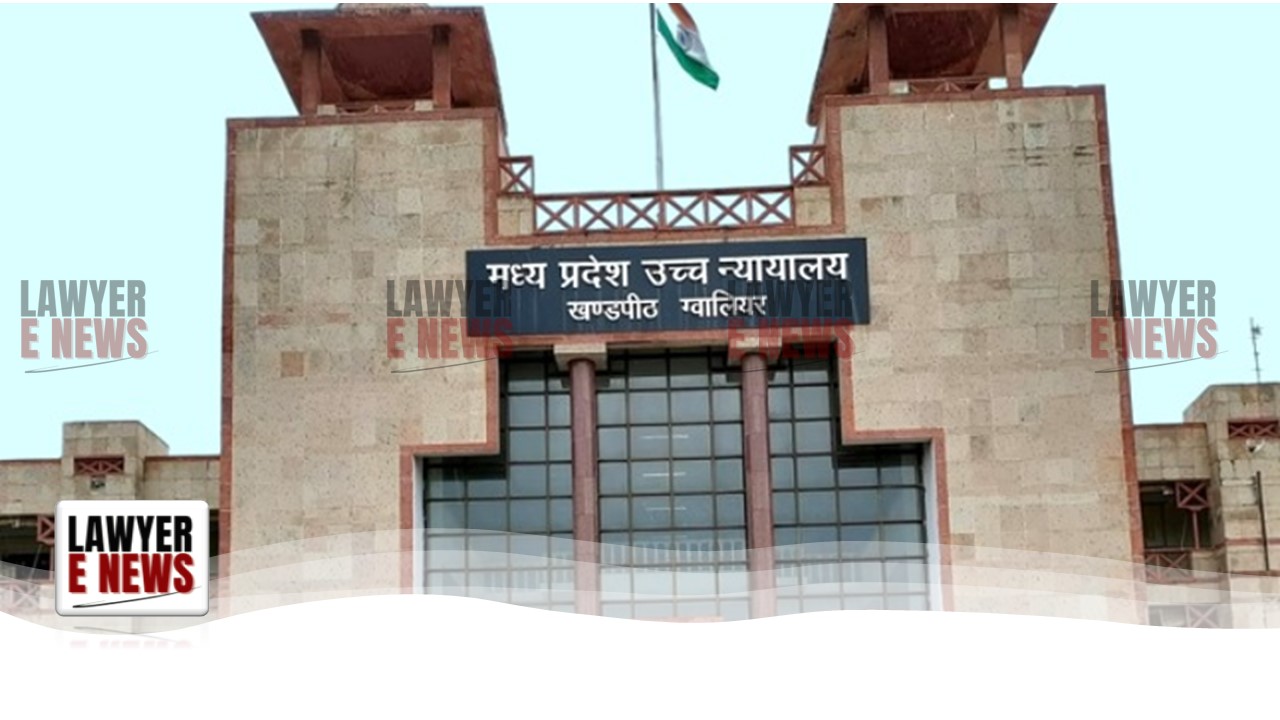-
by Admin
15 February 2026 5:35 AM



"Declaration under Annexure C suffices in absence of a prohibitory court order. Passport Authorities cannot demand additional court permission based on one parent’s objection," ruled the Madhya Pradesh High Court while safeguarding the constitutional right to travel abroad under Article 21.
Madhya Pradesh High Court quashed the Passport Authority’s communication requiring court permission for renewing the passports of two minor daughters. The petitioners’ mother had submitted an Annexure C declaration under the Passport Rules, stating the absence of any court order prohibiting passport issuance, despite the objection of the children’s father.
"Right to Travel Abroad is a Fundamental Right under Article 21"
The dispute arose after the mother of the minor petitioners applied to renew their passports, which were due to expire on January 16, 2025. The Passport Authority, however, refused to process the applications, citing the father’s objection and demanded court permission for renewal.
The father (Respondent No. 3) opposed the issuance of passports, claiming that the mother may misuse them to remove the children from his access amidst an ongoing custody dispute in the Family Court, Mumbai. The mother contended that she had submitted a valid declaration under Annexure C, which suffices in such cases unless a prohibitory order from a competent court exists.
Justice Vinay Saraf relied heavily on the precedent set by the Bombay High Court in Miss Yushika Vivek Gedam v. Union of India & Others (WP No. 19042/2024), which held that Annexure C declarations should be acted upon by Passport Authorities unless legal prohibitions are in place.
Annexure C – A Legal Safeguard for Single or Disputed Custody Cases
The Court noted that Annexure C specifically accounts for situations involving ongoing custody disputes. It allows the applying parent to declare that:
There is an ongoing custody or divorce case.
No prohibitory court order has been issued barring passport issuance.
The minor child is in the exclusive physical custody of the applying parent.
"Once a declaration under Annexure C is submitted, it must be accepted by the Passport Authorities unless explicitly contradicted by a court order. The Passport Rules do not mandate obtaining court permission in such cases."
Custody Disputes Not a Bar to Passport Issuance
The Court clarified that the pendency of a custody dispute does not automatically bar passport renewal for minors. It stated:
"There is no provision in the Passport Rules requiring consent from both parents in every case, especially when the applying parent has sole physical custody, and no court order prohibits the passport’s issuance."
“Passport Issuance Cannot Be Arbitrarily Denied”
Highlighting the constitutional right to travel under Article 21, the Court stated:
"The right to life and personal liberty under Article 21 includes the right to travel abroad. Denying this right solely on the basis of one parent's objection, without any valid legal ground, is arbitrary and violates constitutional safeguards."
The Court also rejected the father's argument that pending custody litigation should prevent passport renewal, emphasizing that such objections must be substantiated by prohibitory orders from a competent court.
The Court referenced the Supreme Court’s judgment in Maneka Gandhi v. Union of India (1978), stating:
"The procedure to curtail the right to travel must be fair, just, and reasonable—not oppressive or arbitrary. Passport Authorities must implement the Passport Act in a manner that aligns with the evolving needs of modern life, including education, professional opportunities, and global travel."
Decision: Passport Authority’s Communication Quashed
The Court allowed the petition and quashed the Passport Authority’s communication dated November 8, 2024, directing the authorities to renew the minors' passports within one week based on the Annexure C declaration submitted by their mother.
The father is free to approach the Family Court, Mumbai, if he wishes to contest the genuineness of documents or seek a prohibitory order.
The Family Court will adjudicate any such application independently, without being influenced by this judgment.
The Court concluded:
"The procedural safeguard under Annexure C was introduced to simplify situations involving single parents or custody disputes. Passport issuance cannot be stalled unnecessarily, especially when no legal prohibitions exist."
This judgment reinforces the principle that the right to travel is an integral facet of personal liberty and cannot be arbitrarily curtailed by procedural hurdles or objections without legal merit. It also underscores the importance of adhering to statutory frameworks like Annexure C in the Passport Rules, ensuring that administrative decisions remain fair, efficient, and aligned with constitutional rights.
Date of Decision: January 15, 2025
